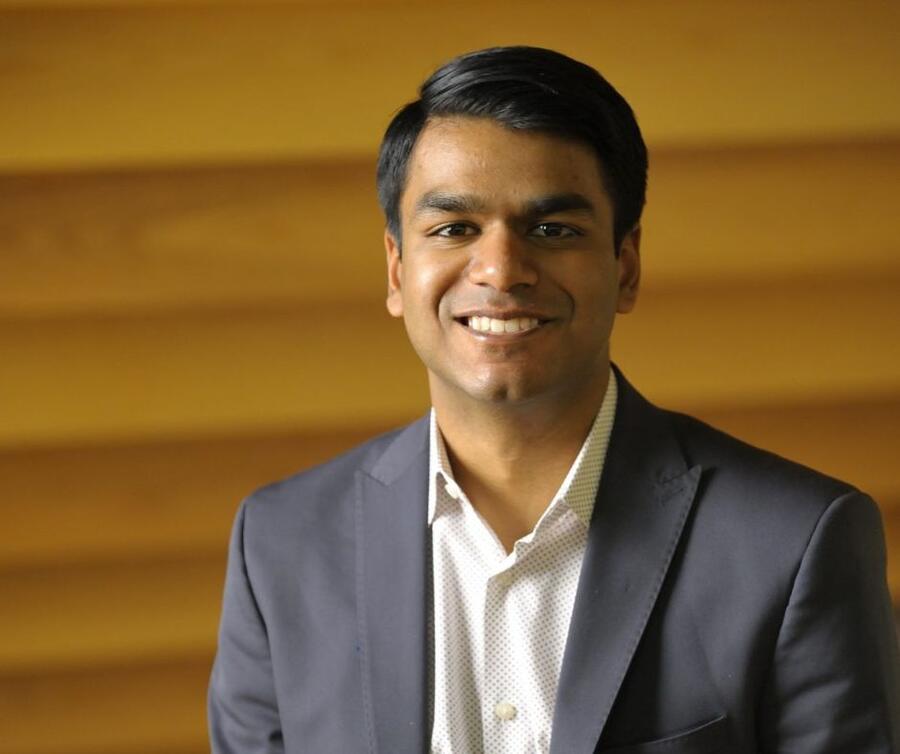I entered Illinois in the Division of General Studies because I was undecided as to what I wanted to major in. I talked to a lot of advisors throughout all four years, figuring out what classes I needed and what was best for me. I ultimately decided I wanted to become a doctor and have my own practice after my freshman year, so I needed to have the pre-med coursework and also to learn how to run a business. My plan was to open a practice in a low-income/underserved area. My goal was to develop a model for underserved communities to provide quality services that remain accessible to everyone, while also maintaining a sustainable model that keeps the business running. I ultimately decided on a Finance degree in the Gies College of Business, in addition to completing all the pre-med classes and the MCAT exam.
Many of my Illinois experiences opened my eyes to the inequities that exist in the world. For example, I took a class called Reducing Inequities, which is a part of the Grand Challenge Learning program. That was an eye-opening experience in understanding intersectionality. Each class introduced us to a professor with a different specialty, and they would talk about inequities in the world from their academic perspective. We would talk about infrastructure, segregation, neighborhood zoning – even how tipping jobs are inequitable because they begin with a lower minimum wage. I came to recognize that the inequities that exist on a global level start at the local level.
Taking action to make a difference is so important. I got involved in a variety of organizations and roles on campus, such as the Student Government’s Financial Affairs and Ad Hoc Mascot Exploration Committees, Illinois Business Council (a business organization), Enactus (a social entrepreneurship organization), and Phi Delta Epsilon (an international medical fraternity on campus). One very meaningful experience was my work on the Dean’s Student Advisory Board for Gies Business where we worked to initiate change to improve the inclusivity of the organizations within the college with the support of Dean Jackson, Dean Brown and various other faculty members. We wanted to figure out how to get people to work together, and to expand opportunities in the recruiting process for underrepresented communities such as people of color and people who are coming from low-income backgrounds. A lot of my college experience involved trying to make things more equitable in these spaces. Through my student organization participation, I learned teamwork and leadership skills. I also discovered nice ways to put those skills to use to make real change.
My experiences at Illinois helped me recognize global inequities. I also recognized that if I want to make a difference in underserved communities, I need a deep understanding of and connection to these communities; those that are closer to the issues are closer to the solution. Spurred by this desire, and the input of trusted peer mentors, I am now serving as a High School Biology Teacher with Teach for America in Dallas, TX. The majority of our student population is eligible for free or reduced lunch, meaning they come from low-income backgrounds. Approximately 10% of our student population are considered housing-insecure. And yet, the school building resides in a gentrified area. Many of our students travel from different neighborhoods across Dallas to come to the school. So many of my students are so resilient; they are able to take what they deal with outside of school, show up and give their best effort.
The best part about teaching comes when a kid has those ‘A-ha!’ moments, where they get a concept that they’ve been battling. It’s that moment where a kid is like “I can do this!” and feels confident. I think a lot of it comes from outside normal classroom instruction time – a kid coming in during lunch or after school connecting with you and telling their story. A lot of it is building connections with the kids and being able to be a mentor; showing them things that they would have never known otherwise.
For current students back at Illinois, I encourage you to find your why. For me, my “why” has been empowering individuals with information and tools so that they can become agents of change. Figure out what you want to do. Whether it’s being a doctor, being in finance, being a teacher, whatever it is – figure out WHY you want to do that. Is it because you intrinsically care about other people? Is it that you want to make more money? All reasons are valid. Finding your why is the most important thing. There’ll be hard days in college where you’re thinking ‘why am I here?’. You have to dig into your why and remember what’s keeping you there. What is your motivation for studying and grinding in the library until 2 AM? You need a purpose that’s going to motivate you every single day.
Also, find a mentor who can help you find your path or connect you to people who are doing the things that you want to do. I had never heard about Teach for America until I heard that some of my mentors were doing it. It was something that clicked with me and I stuck with it.
Finally, understand that you’re going to fail; that’s just the reality of life. You are not going to succeed at everything. What’s important is that you reflect on and learn from your failures, and then use them to move forward.
